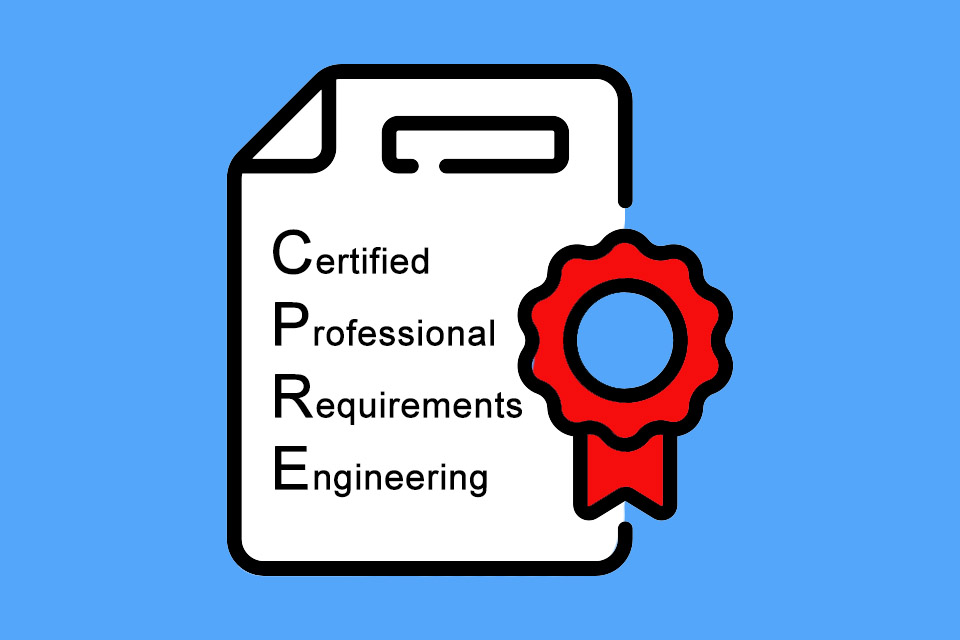What is CPRE?
Smartpedia: The Certified Professional for Requirements Engineering (CPRE) is a personal certificate for employees from Requirements Engineering, Business Analysis and Testing.
CPRE – IREB’s certification model for requirement specialists
CPRE stands for Certified Professional for Requirements Engineering and is a certification model of the International Requirements Engineering Board (IREB). As a so-called personal certificate, CPRE addresses people who are professionally involved in requirements engineering, business analysis or testing.
The contents of the curricula compiled by the IREB are provided by independent training providers. The final examinations are conducted by recognised and tested certification companies.
Levels of the CPRE certificate
The following four levels are offered for the CPRE certificate:
- The CPRE Foundation Level contains the basic knowledge of requirements engineering including practical methods and techniques. There are no admission requirements for the CPRE Foundation Level.
- The RE@agile Primer teaches how requirements engineering methods and techniques work in agile development processes and which agile techniques can improve RE practice.
- The CPRE Advanced Level stands for the application and mastery of methods and techniques. It is offered in the modules Requirements Elicitation & Consolidation, Requirements Modeling, Requirements Management and RE@Agile. Prerequisite for the CPRE Advanced Level is the Foundation Level certificate.
- The Expert Level addresses highest expert knowledge as well as outstanding knowledge and practical experience. Prerequisites are at least three CPRE Advanced Level certificates, three years of work as a requirements engineer and an activity as a trainer or coach in requirements engineering. There is no curriculum for the expert level. The examination consists of a written application, a term paper and an oral examination.
All CPRE certificates have unlimited validity.
CPRE Foundation Level – Syllabus 3.0
Since 01 October 2020, the CPRE Foundation Level – Syllabus 3.0¹ has been available, which includes plan-based as well as iterative and agile approaches to specifying and managing requirements. 7 different educational units are defined:
- EU 1 explains the “what, why, where and how” in requirements engineering.
- EU 2 describes nine basic principles of requirements engineering:
+ Value orientation: requirements deliver value, they are not an end in themselves.
+ Stakeholders: The wishes and needs of the stakeholders are at the centre.
+ Common understanding: Successful system development is not possible without a common understanding.
+ Context: Systems cannot be understood in isolation.
+ Problem – Requirement – Solution: These three aspects must be intertwined.
+ Validation: Non-validated requirements are useless.
+ Evolution: Changing requirements are the norm.
+ Innovation: More of the same is not enough.
+ Systematic and disciplined work: The basis for successful requirements engineering. - EU 3 covers the documentation process and the documentation results (work products). Agile concepts such as user stories and story maps, communication and iterative software development are new.
- EU 4 describes different sources for investigation techniques, conflict resolution techniques as well as validation techniques.
- EU 5 looks at influencing factors and process facets (linear vs. iterative, prescriptive vs. exploratory, customised vs. market-oriented).
- EU 6 addresses the management of the RE process.

If you like the article or want to discuss it, please feel free to share it in your network. And if you have any comments, please do not hesitate to send us a message.
[1] Here you can find the CPRE Foundation Level Syllabus 3.0 in English.
More than 80,000 CPRE Foundation Level certifications have been issued in 91 countries worldwide (source: IREB).
Here you can find details on the various certifications and requirements.
Here is a list of the training providers.
Here you can find additional information from our t2informatik Blog:


